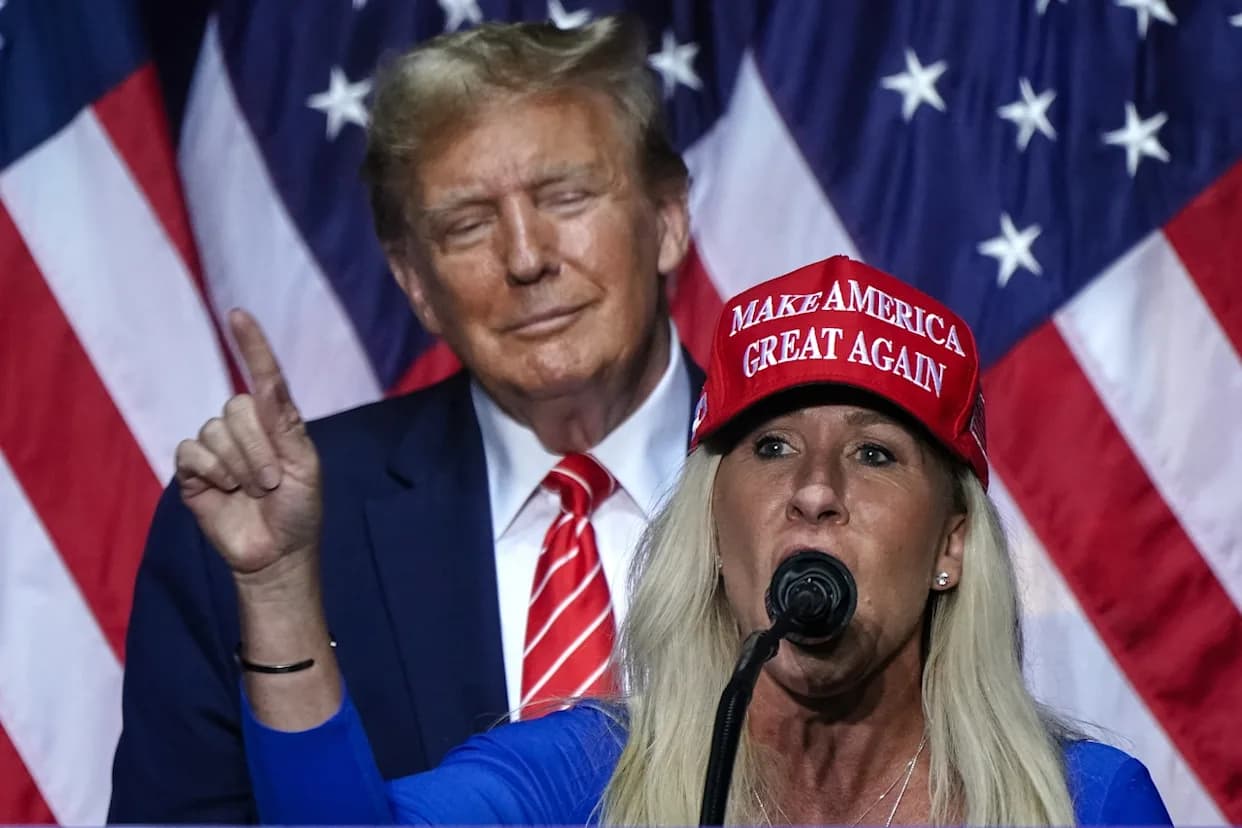We're loading the full news article for you. This includes the article content, images, author information, and related articles.
A dramatic public split between former President Donald Trump and Congresswoman Marjorie Taylor Greene signals deepening fractures within the U.S. Republican party, carrying significant implications for the upcoming 2026 midterm elections.

WASHINGTON D.C. – In a significant political rupture, former U.S. President Donald Trump publicly withdrew his endorsement of Georgia Congresswoman Marjorie Taylor Greene on Friday, November 14, 2025, escalating a feud that reveals growing ideological divides within the Republican party. The fallout, which played out over social media, stems from Greene's recent criticisms of Trump's policies, particularly his focus on foreign affairs and his administration's handling of files related to the late convicted sex offender Jeffrey Epstein.
In a nearly 300-word post on his Truth Social platform, Trump announced, "I am withdrawing my support and Endorsement of 'Congresswoman' Marjorie Taylor Greene." He characterized his former staunch ally as having gone "Far Left" and accused her of incessant complaining. "All I see 'Wacky' Marjorie do is COMPLAIN, COMPLAIN, COMPLAIN!" Trump wrote, employing derisive nicknames. He further stated he would support a primary challenger against her in Georgia's 14th congressional district if "the right person runs."
The schism appears to have been triggered by a series of public statements from Greene questioning Trump's adherence to his "America First" agenda. She has been critical of what she perceives as the administration's excessive focus on foreign policy over domestic issues like high living costs and healthcare premiums. "I would really like to see nonstop meetings at the WH on domestic policy not foreign policy and foreign country's leaders," Greene posted on X, formerly Twitter, after Trump's meeting with Syrian interim president Amad al-Sharaa. Trump had previously dismissed these critiques, telling reporters on Monday, November 10, that Greene had "lost her way."
A central point of contention is the handling of Justice Department records on Jeffrey Epstein. Greene is one of only four House Republicans who signed a petition to force a vote on a bill to release the files, a move the Trump administration reportedly viewed as a "hostile act." Trump has publicly urged Republicans to drop the issue, which he has labeled a "hoax."
In her response to Trump's disavowal, Greene alleged the attack was a tactic to intimidate other Republicans before a House vote on the Epstein records expected next week. "It's astonishing really how hard he's fighting to stop the Epstein files from coming out that he actually goes to this level," she wrote on X. Greene shared screenshots of text messages she claimed to have sent Trump, urging him to be transparent about the files.
Trump's social media post also contained personal attacks, claiming the rift began after he showed Greene a poll indicating she had little chance of winning a race for Senator or Governor without his endorsement. He also claimed she was upset that he no longer returns her phone calls, stating, "I can't take a ranting Lunatic's call every day."
Greene refuted these claims, stating she had not called him. While reaffirming her past support, she drew a clear line: "I don't worship or serve Donald Trump. I worship God, Jesus is my savior, and I serve my district GA14 and the American people."
This public feud between two of the most prominent figures in the MAGA movement highlights a potential realignment within the Republican party. Greene, once a quintessential Trump loyalist, has increasingly adopted more independent, and at times critical, stances on party leadership and policy direction. Her recent critiques on the government shutdown, healthcare costs, and foreign policy have puzzled and frustrated some of her GOP colleagues.
The split could have significant repercussions for the 2026 midterm elections, potentially signaling to other Republicans that fealty to Trump is not absolute and creating space for divergent policy debates within the party. While the immediate impact on Kenyan and East African affairs is not direct, the infighting within a major U.S. political party offers a case study in political realignment and the challenges of maintaining party unity under a dominant political figure. The outcome of this rift will be closely watched globally for its potential to reshape the future direction of the Republican party and American politics.
Keep the conversation in one place—threads here stay linked to the story and in the forums.
Sign in to start a discussion
Start a conversation about this story and keep it linked here.
Other hot threads
E-sports and Gaming Community in Kenya
Active 9 months ago
The Role of Technology in Modern Agriculture (AgriTech)
Active 9 months ago
Popular Recreational Activities Across Counties
Active 9 months ago
Investing in Youth Sports Development Programs
Active 9 months ago